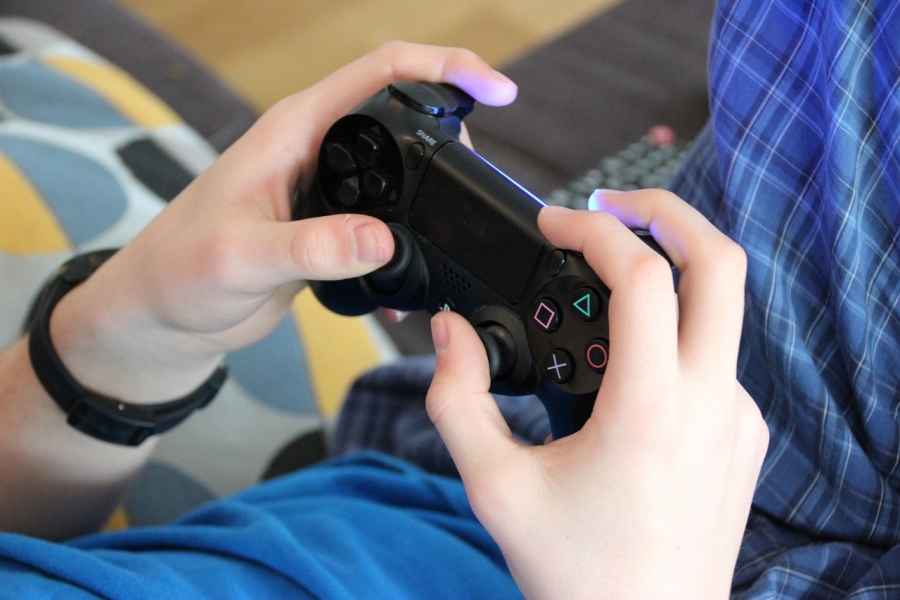Although it is well known that video gaming can be addictive, some studies now contend that playing them can serve as a stepping stone to gambling. Video games are played by the vast majority of children and adolescents in the western world, with each spending an average of 13 to 14 hours each week. Young adults also heavily rely on video games in their lives; in the US alone, 38% of gamers are between the ages of 18 and 34.
What are the dangers of gaming, and what can you do to guard against giving your kids a bad gaming habit that could lead to gambling?
Comparison of Video Games and Gambling
Similar to gambling, playing video games can be done just for fun and by a large number of people without ever becoming problematic. Positive benefits of gaming include the opportunity for social engagement and a means of communication with people around the globe. However, just as Internet gambling is intended to be addictive, games are also made to encourage obsessive use.
Your brain continuously releases dopamine throughout playing video games, with sporadic unpredictable bursts. As time passes, your brain develops a tolerance to dopamine release and needs more of it to feel enjoyable. As a result, compared to an exciting computer game, other activities may seem drab or monotonous.
Gameplay and gambling are highly accessible and both can be done via smartphones, but the closest parallel between the two is the payment of money in exchange for the possibility of receiving a reward or receiving additional money, which is done by purchasing loot boxes in gaming.
Temptation of Loot Boxes
In a video game, you can purchase or win a loot box. The box’s contents are entirely arbitrary, and the result is always determined by chance. There is absolutely nothing anyone can do to guarantee you get what you really desire, yet you might acquire specialized equipment or cash. Nevertheless, in some games, users have the option to exchange their loot box rewards for real money.
Loot boxes are extremely similar to slot machines in terms of the element of chance involved as well as the probability of winning anything significant. On every spin, you are bound to receive something, but the result is seldom what you were hoping for. In some loot boxes, “near misses” are also displayed, which is evocative of casino games.
The NSW Youth Gambling Study indicated that young people who purchased loot boxes and enjoyed video games with gambling elements were more likely to gamble. There is great disagreement on if loot boxes should indeed be classified as gambling or should not. Some firms have removed their titles from the market as a result of some nations, including Belgium, classifying loot boxes as gambling products. Although some nations may be considering doing so, the popularity of loot boxes does not really appear to be waning (and to tell you the truth, most likely it will not). Over the next two years, according to a new projection, gamers will spend approximately $50 billion yearly on loot boxes.
Why do players think they need to buy loot boxes then? Simply purchasing a loot box can lead to player addiction. The risk and excitement of purchasing a loot box are sufficient to keep players doing so. Some players believe that in order to advance in their game and obtain access to additional tools and levels that will assist them in keeping up with their companions in the game, they must purchase loot boxes.
The Symptoms of a Gaming Addiction
Although gaming may not always entail an obsession with cash in the same way as gambling does, the symptoms of a gaming problem are quite similar to those of a gambling condition.
Similar to how one may relax with a glass of wine or a beer, playing video games might take the edge off of a challenging day. Games can be viewed as a mindless pastime that can ease stress in both adults and kids. The following are some red flags to watch for when observing your kid, adolescent, or adult child:
- When not playing, one cannot stop thinking about games.
- When not playing, you may become agitated, cranky, restless, or frustrated.
- Consistently prioritizing gaming before other obligations
- Being unable to cut back on playing time.
- Decline in interest in activities that were once enjoyed.
- Lying about the time spent playing video games.
- Using gaming as a coping strategy or an escape.
How to Prevent Gaming Disorder in Children
Children and teens are more likely to have a significant negative association with gaming because of their underdeveloped brain structure and function, which is connected to higher impulsivity.
Below are a few things parents may take to shield their kids from getting gaming or gambling addictions:
- Keep an eye on your personal gambling and gaming behavior. Parents frequently have the biggest impact on young people’s gambling. Think carefully about the kinds of things you expose your kids to, such as playing video games involving loot boxes, betting on sports, or buying lottery tickets. Do that without them being around – trust us, you will enjoy playing at BGaming casino sites much more in such circumstances.
- Recognize the kinds of games your children enjoy. At minimum once a week, 67% of parents engage in video games alongside their kids. This might assist you in identifying which games are secure and which ones require closer supervision or outright bans.
- Limit your everyday time. Instead of being a necessity or a right, gameplay should be a privilege. Setting time restrictions allows your kids to discover other things to do to pass the time.
- To stop your child from buying loot boxes, block in-app purchases or create passwords for in-app transactions.
- Tell your youngster about the risks associated with loot boxes. You should educate your youngster on the negative effects that gaming, especially with regard to loot boxes, might have on them.
- Recognize their motivations for playing video games. Is it merely something they do to entertain themselves or just to have a fun time with classmates? Or does something more fundamental need to be addressed? You can have a serious discussion with your teen or young adult child about their habits in relation to gaming and support them in getting the necessary treatment for just any underlying mental disorders.
Conclusion
In the end, moderation is crucial, and excessive use is typically the only way to build a negative relationship with video gaming.
There are undoubtedly skilled gambling counselors in your neighborhood or in the city you reside in if you are worried that either you or your older child may be growing a gambling or gaming issue. They are specialists in the diagnosis, treatment, and prevention of compulsive behavior in adults of all ages who have any sort of gambling illness. Speak with your gambling therapists to get advice on what to do next. Better safe than sorry, if you know what we mean...






